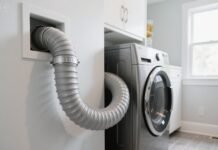Last Updated on March 16, 2024 by Umer Malik
If you need a professional to take a look at your AC unit, reach out to American Home Water and Air for AC repair in Phoenix.
Table of Contents
What is an HVAC Inspection Checklist?
Before diving into the details, it’s important to learn the basics. HVAC (heating, ventilation, and air conditioning) refers to the various systems used to control the humidity, temperature, and purity of indoor and outdoor air. It also takes into account the heating and cooling of air in an enclosed space to provide comfort and optimum indoor air quality.
Meanwhile, an HVAC inspection list is utilized for many reasons. These include one or more of the following reasons below:
● To keep you updated with the scheduled maintenance
● To prepare for possible HVAC repairs or replacements
● To plan your finances in advance
● To guarantee that no significant HVAC concern is left behind
When making your own HVAC inspection checklist, you have to consider a lot of things. These include significant aspects of your HVAC system, particularly the age, condition, size, brand, and frequency of usage.
What are the Typical HVAC Problems to Watch Out For?
Aside from the things mentioned earlier, it’s also important to list down the common problems of your HVAC equipment. This way, you can easily point out the matter to the HVAC technician before the scheduled inspection. So, below are the typical issues your unit might experience during the course of its lifespan.
1. Neglected maintenance
This is probably the most common of all that significantly affects your HVAC unit in the long run. Maintenance is always a part of an HVAC system to ensure its maximum performance. And if your equipment is not regularly tuned up, this can lead to several minor issues and major problems in the future, which will be further discussed below.
2. Dirty air filters
One of the consequences of irregular maintenance is dirty airflow caused by filthy air filters. This may seem like a simple problem, but it brings so much inconvenience to your comfort and even health as time passes by. Dirty air filters block the airflow in the HVAC system and may even cause the entire unit to shut down if the system overheats.
On the heath side, air filters serve as the sifter of dirt, dust, and other harmful particles. Therefore, if these are not cleaned regularly, it can be the reason for recurring allergies and other respiratory complications. On top of that, you can expect your utility bill to increase as the HVAC system works double time due to insufficient airflow.
3. Frozen components
During the winter season, there’s a high possibility that several HVAC components will be affected, particularly the evaporator coils and lines. If this happens, be sure to contact an HVAC technician immediately to help defrost the frozen parts. If you neglect this issue, the frozen water sections may cause the coils or lines to burst, creating severe damage to your unit.
4. Unusual noises from your unit
While there are a few common sounds produced by your HVAC unit like popping when the unit is turned on after a very long time, there are some noises that imply a more serious issue. Therefore, you need to be cautious when your equipment generates unusual sounds like hissing, bubbling, clanking, screeching, grinding, and buzzing.
Bothering noises like these often stem from a damaged part, or it could be an unfamiliar particle entering the HVAC system. If the sound continues to linger for several minutes, be sure to turn off the unit and get assistance from an HVAC specialist. It’s very important to have the equipment checked by experts to identify the underlying cause of the sound.
5. Inconsistent temperature
Another HVAC problem is the inconsistent temperature within your home. There are a lot of factors that affect the varying cooling levels in an area. It could be that ducts are not properly set up, resulting in the shutting down of the thermostat in certain sections. Clogged air filters, damaged air handlers, and faulty thermostats are other possible reasons.
Meanwhile, if your HVAC system has been running for quite a while now, perhaps over 15 years, then it’s already considered past its prime time. Therefore, there may be inconsistency in its performance and a decline in cooling capacity. Though repairs can be good, it’s best to assess whether a replacement is a better decision.
6. High energy bills
If you experienced a drastic increase in your power bill without any major improvements in your home, then it could be due to your HVAC system. The main cause, however, can vary. The issue may be related to leaky ducts, dirty filters, damaged parts, or even old unit age. Thus, it’s best to know the root cause of the problem through an HVAC consultation to resolve the issue fastly.
7. Water leaks
Drain pipes are tasked to handle the proper flow of water from the system to the outside section of the unit. If there are clogged parts or leaks in the line, the water drainage is largely affected. To keep the pipes working efficiently, you must clean the line frequently to ensure there is no blockage. If there are leaks, get a service technician to help you out.
What are the Types of HVAC Inspections?
Now that you have a deeper comprehension of the basic HVAC problems, it’s time to delve into the major HVAC maintenance types.
● HVAC inspection – This is a general analysis of your HVAC equipment but it does not often include maintenance. This is recommended for real-estate purchases, though could also be utilized by homeowners in need of second opinions about their HVAC system.
● HVAC tune-up – On the other hand, HVAC tune-up is best for seasonal check-ups. It already comes with a detailed evaluation of your unit to assess its condition. Cleaning and replacement of parts are also included during HVAC tune-ups. ● HVAC repair – Repairs are more limited in scope as it focuses on a specific problem. The fee could also vary depending on the diagnosis of the problem.
Read more: Where to Find the Best HVAC Specialists



























